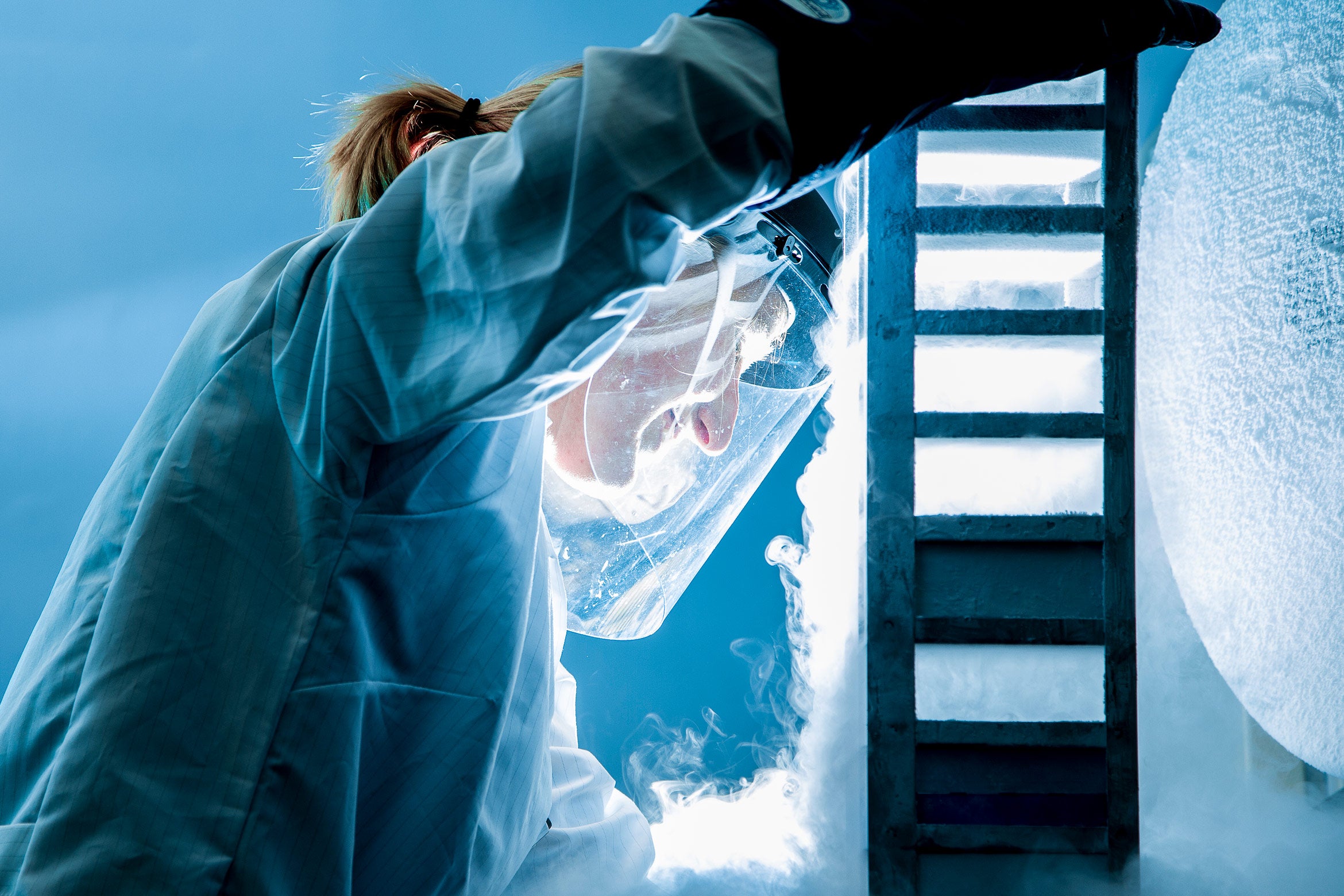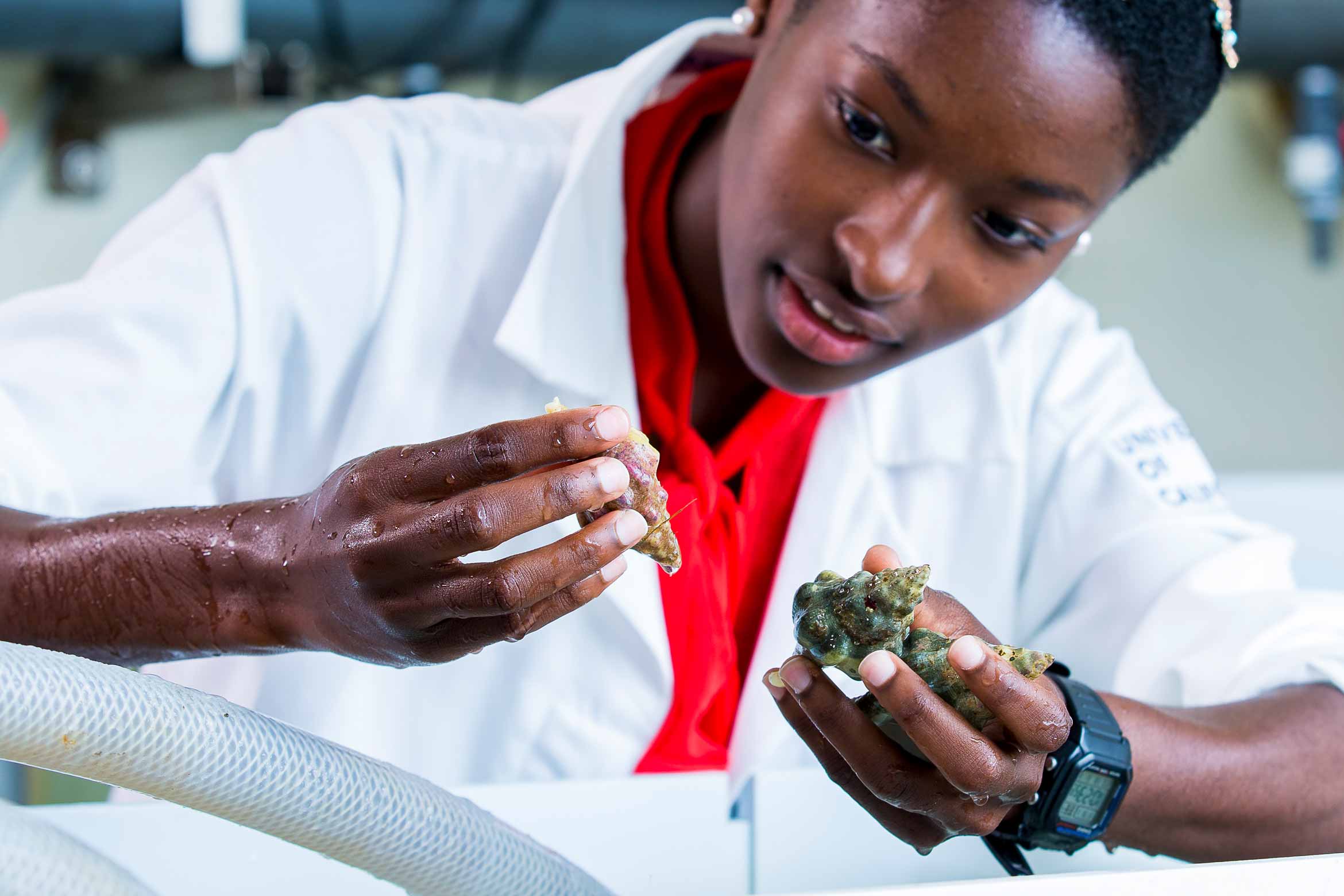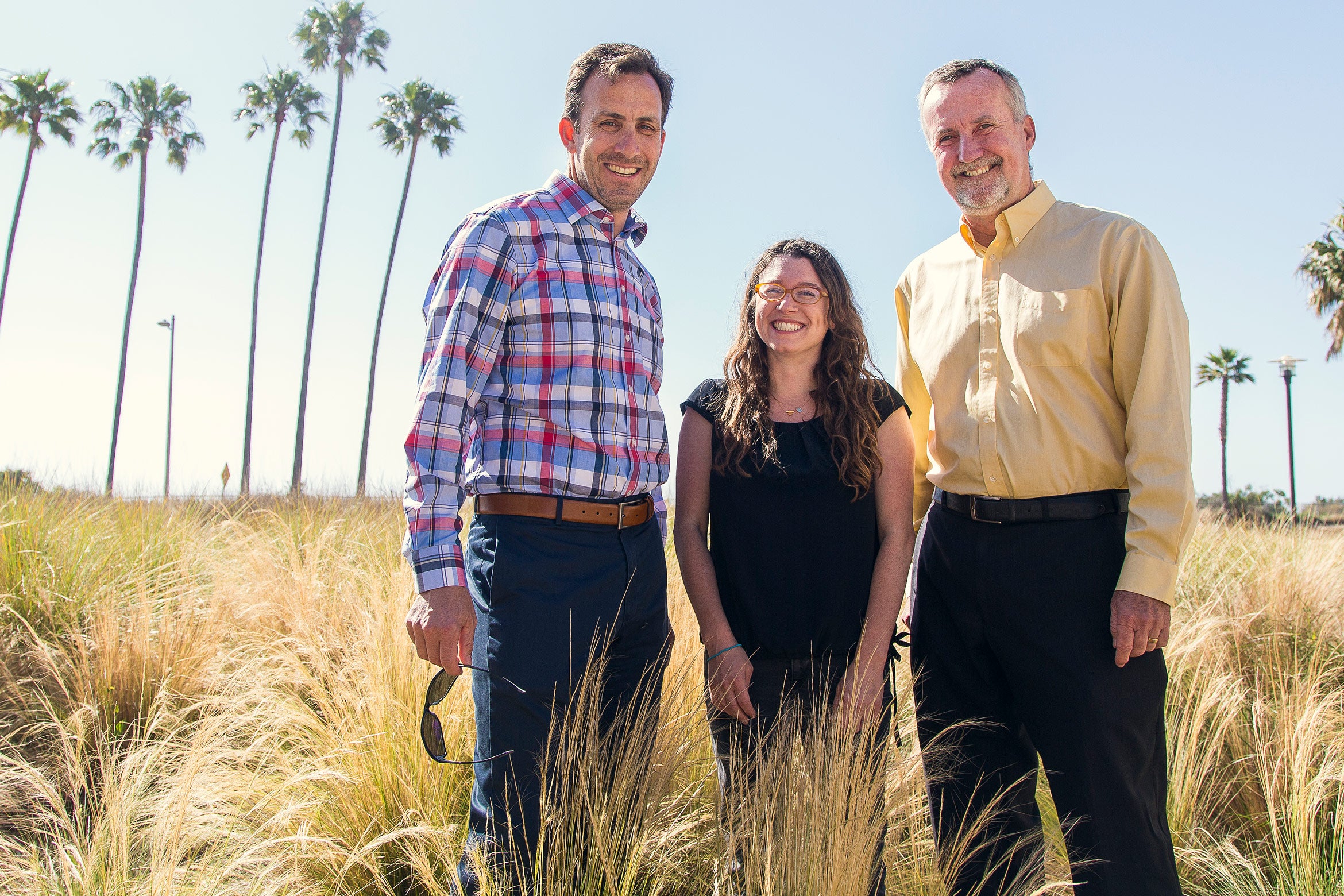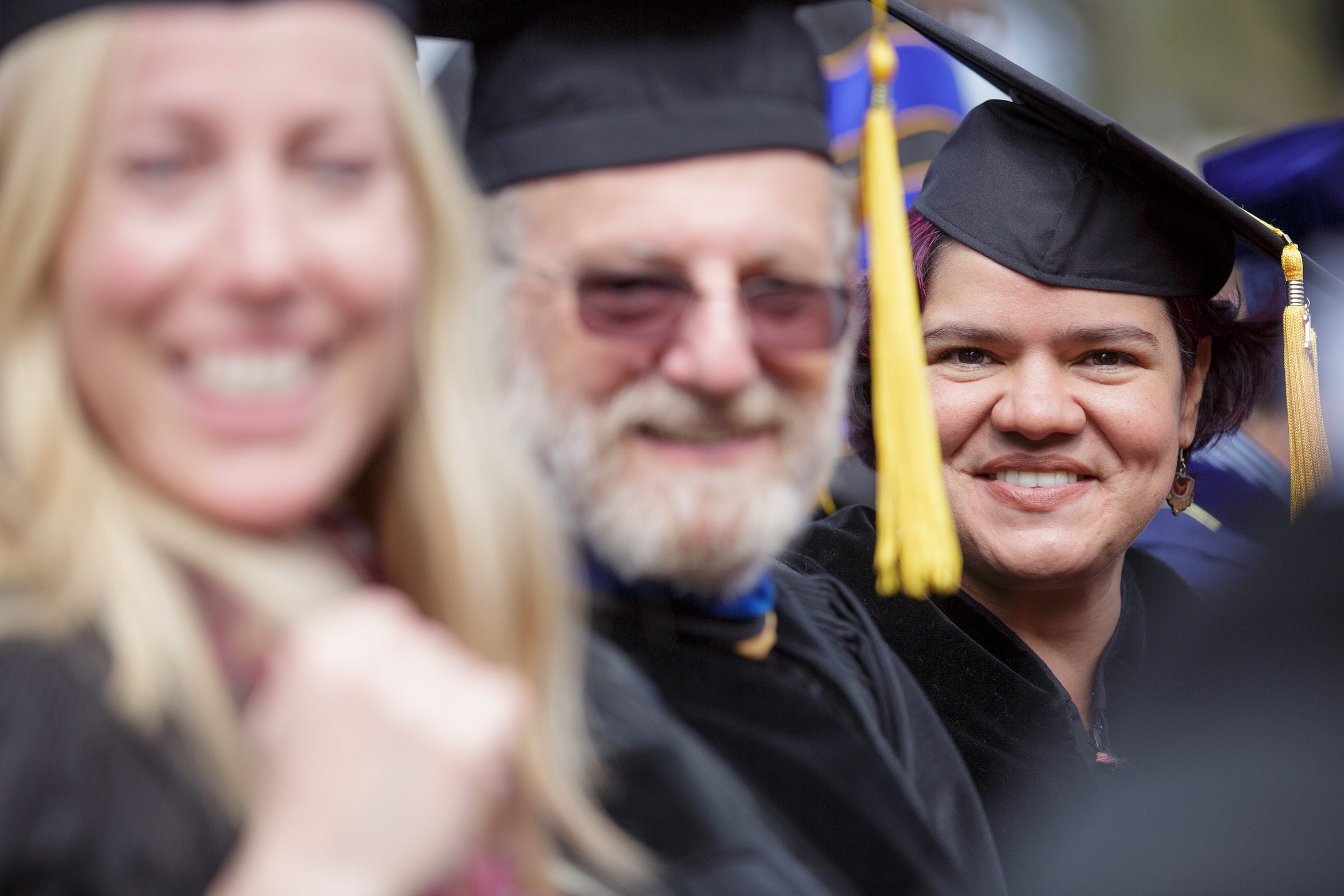
Dreaming of a doctorate? Maybe a master’s degree? With more than 50 graduate programs available in a diversity of disciplines — from physics to philosophy — your Ph.D., M.A., or M.S. aspirations can be realized here. Take our academic distinction, add in our socially engaged community and inclusive environment and boom, you’ve got the recipe for one rewarding graduate career.

UCSB offers master’s degree and Ph.D. tracks in diverse disciplines, with top programs in engineering, the sciences, social sciences, humanities, education, and the arts. Many of our graduate programs are inherently interdisciplinary, such as Materials Science, Global and International Studies, and Media Arts and Technology.

A world-class education and the opportunities, resources, and support for career attainment — that’s what we provide our graduate students. We strive to cultivate individual strengths and talents and welcome every student as our partner. We value collaboration and discovery across disciplines and recognize the critical role of diversity in realizing our potential for excellence and innovation.

To solve environmental problems — that’s our aim. We’re making good on that goal by integrating science, management, law, economics, and policy. Our interdisciplinary approach is rare among U.S. universities and unique to the West. And it’s one reason we’re considered among the best schools of our kind in the country.

Advancing scholarship. Educating scholars. Training educators. Tackling societal challenges by innovating educational models for research, teaching and service. Aiming to improve pre-collegiate public education,The Gevirtz School is a hub for all those efforts and more.
UCSB’s renowned faculty includes six winners of Nobel Prizes for landmark research in chemistry, physics and economics. An alumna of our College of Creative Studies won the 2009 Nobel in Physiology or Medicine.
National Institutes and Centers
The campus is home to ten national institutes and centers. Among them are the Kavli Institute for Theoretical Physics and the Materials Research Laboratory, both funded by the National Science Foundation, and the U.S. Army-funded Institute for Collaborative Biotechnologies.